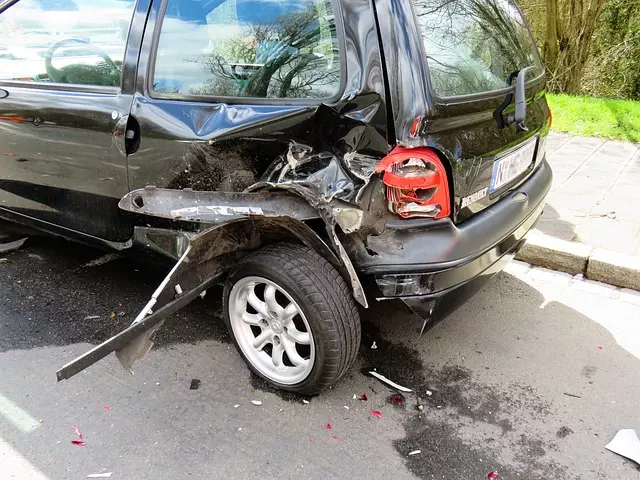Are you seeking justice after a taxi cab or rideshare collision? Understanding Rideshare Safety Litigation is crucial. This article demystifies the legal process, from identifying liability in cases involving driver negligence, company oversight, and third-party factors to building a strong case and negotiating outcomes. Learn what steps to take immediately after an accident, your rights as a passenger or driver, and potential compensation for damages. Discover how rideshare safety litigation impacts industry regulations.
- Understanding Rideshare Safety Concerns
- – Definition of rideshare services and their rapid growth
- – Common safety issues in ridesharing: driver fatigue, distraction, and intoxication
- – Statistical overview of accidents involving rideshare vehicles
Understanding Rideshare Safety Concerns

Rideshare Safety Litigation is a growing concern as the popularity of ridesharing services continues to increase. While these services offer convenience and cost-effectiveness, they also introduce unique safety challenges that must be addressed. Understanding these concerns is paramount for both riders and legal professionals specializing in Rideshare Safety Litigation.
One of the primary issues is the potential for accidents involving rideshare vehicles, which can result from driver fatigue, distraction, or negligence. As rideshare companies strive to expand their services and increase profits, ensuring the safety of passengers becomes an even greater priority. Legal experts play a crucial role in holding these companies accountable for any failures in maintaining safe operating practices, ultimately protecting the rights of individuals injured in such incidents.
– Definition of rideshare services and their rapid growth

Rideshare services have experienced an unprecedented surge in popularity over the past decade. These services, which include companies like Uber and Lyft, offer a convenient and often cheaper alternative to traditional taxis. With just a few taps on a smartphone app, users can request a ride, providing a level of accessibility and comfort that has attracted millions of customers worldwide.
However, as the use of rideshare services continues to grow, so does the potential for accidents and injuries. Rideshare Safety Litigation is becoming an increasingly important legal field, addressing the unique challenges that arise from these incidents. When collisions occur due to driver negligence or technological malfunctions, victims may have legal recourse to seek compensation for their damages, medical expenses, and other related costs.
– Common safety issues in ridesharing: driver fatigue, distraction, and intoxication

Rideshare Safety Litigation often centers around addressing critical safety issues prevalent in ridesharing. One major concern is driver fatigue, which can be exacerbated by long shifts and the need to constantly stay alert. This, coupled with potential distraction from mobile devices or other in-car distractions, significantly increases the risk of accidents. Intoxication, whether due to alcohol or substance abuse, poses another severe danger, as impaired drivers are less able to respond quickly to changing road conditions. These issues underscore the need for stringent safety measures and regulations within the rideshare industry to protect both passengers and other drivers on the road.
– Statistical overview of accidents involving rideshare vehicles

Rideshare Safety Litigation has become a significant concern as rideshare vehicles, such as taxis and ride-hailing services, are involved in a growing number of accidents. Statistical analyses reveal that while rideshare services have improved safety standards compared to traditional taxi services, they still face challenges related to driver behavior, technological limitations, and road conditions. Recent data indicates that accident rates for rideshare vehicles vary across cities, with urban areas experiencing higher incidences due to dense traffic and pedestrian congestion. These accidents often result in severe injuries and legal complexities, underscoring the need for robust Rideshare Safety Litigation practices to protect both passengers and drivers’ rights.
Rideshare services have rapidly grown, but with this convenience comes a heightened need for improved safety measures. The statistical overview highlights a concerning trend in accidents involving rideshare vehicles due to driver fatigue, distraction, and intoxication. As the industry continues to evolve, addressing these safety issues through enhanced regulations, technology, and driver training is crucial. Understanding the risks and taking proactive steps can help mitigate potential hazards, ensuring a safer experience for both passengers and drivers alike. Remember that Rideshare Safety Litigation plays a vital role in holding companies accountable and fostering positive change within the industry.
